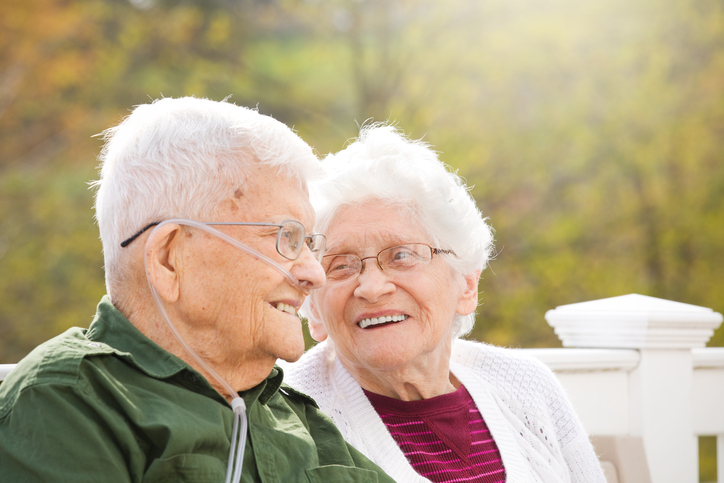
Hearts at Home shares important information on the stages of COPD.
As approximately 11 million people in the U.S. alone are currently clinically diagnosed with COPD (chronic obstructive pulmonary disease), we at Hearts at Home understand the complexities and challenges associated with the airflow restrictions – and as a result, the lifestyle restrictions – that seniors experience throughout all four stages of COPD. It’s necessary for us as caregivers, and for family members who are also providing care, to recognize what to expect in each stage of this progressive disease, and how to assist those with COPD to effectively cope with their condition and live life to their fullest potential.
Our professionals in home health care in Kansas City have broken down the four stages of COPD below for your understanding, along with the suggestions from the Lung Institute on steps you should take to make sure your senior loved one remains as healthy as possible.
Stage 1: Mild COPD
During this phase, it might not even be obvious that there’s a problem aside from living with some coughing and phlegm, and minimal breathing limitations when completing daily activities. While the symptoms may feel minor, it’s important for the senior to see the doctor as soon as possible, so that if a COPD diagnosis is verified, a treatment plan can be established. The health care provider may prescribe medications as well as lifestyle changes – especially quitting smoking, maintaining a healthy diet, and exercising. Alternative treatment solutions, such as acupuncture, chiropractic care, and cellular therapy, may possibly also be tried.
Stage 2: Moderate COPD
With moderate COPD, coughing and mucus are increased, while airflow becomes more constricted. Lung capacity during this stage will have dropped to anywhere between 50 and 79%, and physical activity renders the senior feeling breathless. Medications will probably need to be altered in this stage, and pulmonary rehabilitation may also be suggested by the doctor, helping the person maximize breathing functionality.
Stage 3: Severe COPD
When a senior reaches the severe stage of COPD, the condition will have escalated, and considerable impairment of lung function is endured. Lethargy and breathlessness increase, making it difficult for the senior to remain active, and numerous medical appointments may be necessary. Additional pulmonary assessments will help the medical professional monitor the development of the disease and to consider additional treatment options to boost quality of life, such as oxygen, inhalers, and bronchodilators.
Stage 4: End-Stage COPD
In the end stage of COPD, lung functionality has reduced to 30% or lower, and oxygen therapy will be required. Basic activities of daily living become daunting or impossible to perform without exhaustion and breathlessness. The health care provider will want to keep a close eye on the senior in this stage, adapting the treatment plan to help the person maintain the highest possible quality of life. Activities such as tai chi or yoga might be encouraged to help the individual stay as active as possible while remaining comfortable.
One of the top recommended ways to help seniors with COPD, and the families who care for them, is by partnering with a professional home care agency, such as Hearts at Home. Our care team is highly skilled and experienced in helping those with COPD by:
- Preparing healthy meals as per any dietary restrictions
- Providing safe, accompanied transportation to medical appointments and procedures
- Helping seniors participate in physician-approved exercise programs
- Keeping a clean home environment
- Providing warm, caring companionship
- And so much more
Contact us online or call us any time at 913-440-4209 to learn more about private duty home care in Kansas City and the surrounding areas.
